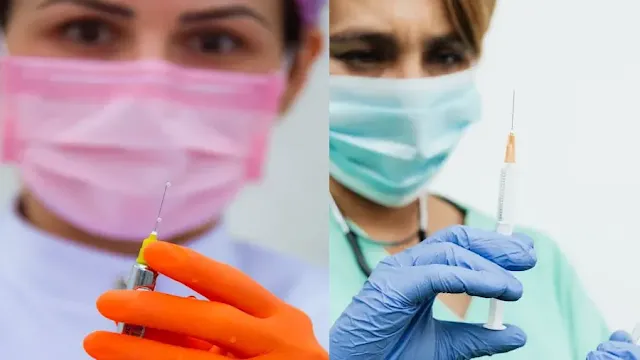Last summer, I embarked on a month-long journey through India, from the bustling streets of Delhi to the serene backwaters of Kerala. While planning, I was overwhelmed by the health precautions needed, especially vaccinations. A visit to a travel clinic clarified what I needed to stay safe, allowing me to focus on the adventure ahead. Traveling to India is an immersive experience, with its vibrant culture, diverse landscapes, and rich history. To ensure your trip is safe and memorable, understanding the necessary vaccinations is crucial. India’s varied climate and health environments pose risks that vaccinations can mitigate. This guide covers recommended vaccinations, health precautions, and answers common questions to prepare you for a safe journey.
Table of Contents
Essential Vaccinations for India
While India does not mandate specific vaccinations for entry (except for Yellow Fever for travelers from endemic countries), health authorities like the CDC and WHO recommend several to protect travelers. Below are key vaccinations to consider for safe travel to India:
- Routine Vaccinations: Ensure you’re up to date on measles-mumps-rubella (MMR), diphtheria-tetanus-pertussis, varicella (chickenpox), polio, and annual influenza vaccines.
- Hepatitis A: Common in India due to contaminated food or water, this vaccine is highly recommended for all travelers.
- Typhoid: Transmitted through contaminated food or water, especially in smaller cities or rural areas. Essential for adventurous eaters or off-the-beaten-path travelers.
- Hepatitis B: Recommended for long-term travelers or those who may need medical treatment, as it’s transmitted through blood or body fluids.
- Japanese Encephalitis (JE): Advisable for rural or agricultural area visitors, particularly during monsoon season (June–September).
- Rabies: Recommended for travelers engaging in outdoor activities, as India has a high incidence of rabies from dog bites.
- Yellow Fever: Required only for travelers arriving from countries with Yellow Fever transmission risk, per Indian regulations.
Consulting a healthcare provider ensures your vaccination plan aligns with your travel itinerary and health needs.
Pre-Travel Health Consultation
Proper planning is key to a healthy trip. Consider the following:
- Visit a Travel Medicine Specialist: Schedule an appointment 4–6 weeks before travel to get personalized vaccination and health advice.
- Tailor to Your Itinerary: Urban areas like Mumbai may have different risks than rural regions like Rajasthan. Share your plans with your doctor.
A consultation ensures you’re prepared for region-specific risks, enhancing your safety.
Other Health Considerations
Beyond vaccinations, protect your health with these precautions:
- Malaria Prevention: Depending on your destination, antimalarial medication may be necessary. Consult your doctor for options.
- Travelers’ Diarrhea: Common in India, discuss preventive measures like antibiotics or probiotics with your healthcare provider.
- Food and Water Safety: Drink bottled or purified water and eat well-cooked food to avoid foodborne illnesses.
Vaccinations and health precautions are vital for a safe trip. By preparing adequately, you can fully enjoy India’s diverse landscapes and cultural richness without health worries.
FAQs About Vaccinations for Travel to India
What vaccinations do I need to visit India?
Recommended vaccinations include Hepatitis A, Typhoid, Hepatitis B, Japanese Encephalitis, Rabies, and routine vaccines like MMR and polio. Yellow Fever is required only if arriving from an endemic country.
What are the mandatory vaccines in India?
India mandates Yellow Fever vaccination for travelers from endemic countries. Other vaccines are recommended but not mandatory.
What is required to travel to India?
Besides a valid visa and passport, ensure recommended vaccinations and health precautions like malaria prophylaxis and food safety measures.
What is the vaccination schedule in India?
Vaccinations like Hepatitis A and Typhoid are typically single-dose or two-dose series, ideally completed 2–4 weeks before travel. Consult a doctor for a tailored schedule.
How many days can vaccination be delayed?
Delays depend on the vaccine. Some, like Hepatitis A, offer partial protection if given closer to travel, but aim for 4–6 weeks prior for optimal immunity.
Which vaccines are not given by the government of India?
The Indian government provides routine vaccines like polio and MMR through public programs, but travel-specific vaccines like Japanese Encephalitis or Rabies are typically obtained privately.
Related Resources:
Do airport x-rays affect medications
Transporting Refrigerated Medication on India Flights
Travelling with Medicines to India
Overcoming Air Sickness on Indian Domestic Flights
Do you need any vaccinations to travel to India?
External Resources:
Passport Health: India Travel Advice






No comments:
Post a Comment